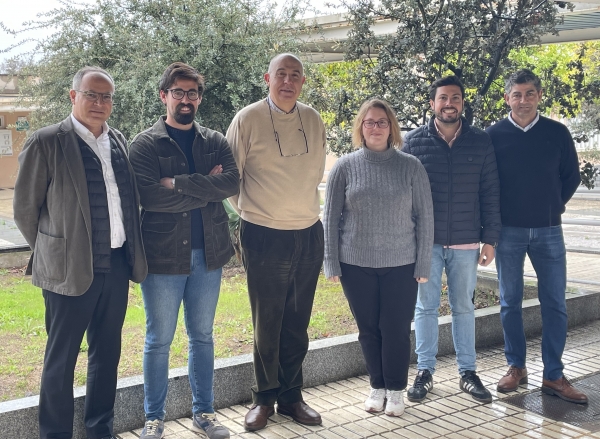Can management improvement measures applied to the breeding of pigs and chickens result in higher quality meat for human consumption? This is the question that the European mEATquality project seeks to answer, featuring participation by 17 institutions and entities from 7 European countries, including Spain, through the University of Cordoba.
The project analyzes different types of pig and chicken farms, both intensive and extensive, focusing on the modification of animal welfare conditions, feed type, and sustainability. The challenge is to produce objective research results that are measurable and predictable. In short, the aim is to create an information platform with measurable parameters that make it possible to evaluate the quality of the product and ensure the sustainability of these production systems from an economic and environmental point of view.
The UCO's participation in the mEATquiality project consists of work by researchers Cipriano Díaz, Santos Sanz, Carolina Reyes and Pablo Rodríguez, coordinated by Vicente Rodríguez Estévez. This team's efforts, which began last October, first consisted of the selection of 20 Spanish pig farms that were as diverse as possible in terms of their production systems. Once chosen, the mission will be to carry out tests with the animals by modifying their diets as well as modifying factors affecting their well-being; for example, providing them with more or less space, outdoor "recreation" time, and the possibility of taking water or mud baths, among other opportunities.
The Córdoba team will also develop the methodology for the Life Cycle Analysis of all the farms participating in the project, whether they raise pigs or chickens. In this it will draw on its previous experience with Spain's dehesas (wooded pasturelands) and extensive and organic ranching on them. This analysis, as Vicente Rodríguez explains, consists of "a methodology to calculate the environmental impact and carbon footprint of a product in every phase of its production, both upstream and downstream, with reference to the farms." That is, the aim is to assess the impact of everything, from the farm's construction material, to the production of the feed consumed by its animals, the carbon footprint of its food transport, the manufacture of fertilizers for its crops, and its corresponding environmental impacts, among other factors. It is, therefore, a question of evaluating the environmental impact of pig farming before and after the animals' breeding. The idea is to examine the environmental sustainability of this whole complex system.
In addition, the UCO team has been charged with designing a mobile application to quickly calculate the sustainability of a farm by introducing its main parameters. The goal is to enable one who is in charge of a farm, through the use of a simple calculator, to carry out a sustainability assessment of it by simply answering a series of questions, Rodríguez says.
The UCO's participation in the mEATquality project has been a great opportunity for this group of researchers to interact with other leading institutions and research centers in Europe, including the University of Wagenigem (Netherlands), which coordinates the entire project.
This project has received funding from the European Union's Horizon 2020 research and innovation programme under grant agreement No. 101000344.


